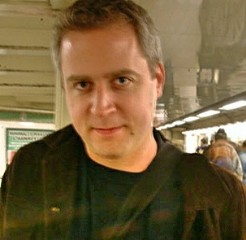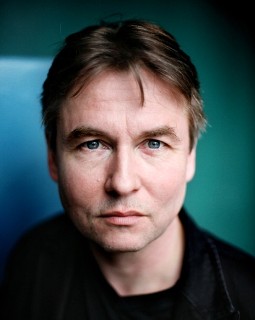|
Back
Denk You Very Very Much New York
Avery Fisher Hall, Lincoln Center
10/16/2014 - & October 17*, 18, 2014
Ludwig van Beethoven: Overture to King Stephen, Opus 117 – Piano Concerto No. 1 in C major, Opus 15
Igor Stravinsky: L’Oiseau de feu
Jeremy Denk (Piano)
New York Philharmonic Orchestra, Esa-Pekka Salonen (Conductor)

J. Denk (© 92 St. Y)
Could those words in the program be correct? That this was Jeremy Denk’s debut performance with the New York Philharmonic??
Words don’t lie, though Mr. Denk has obviously played with and done everything else. I’ve heard Mr. Denk playing in the basement of SubCulture, read his brilliant New Yorker piece about the travails of the recording artist. Have listened to his Webern and Scriabin, and noted that his Internet blog is–along with that of Alex Ross–certainly the most literate, knowledgeable and (oh, how I despise this next word) witty in the sphere.
Yet when Mr. Denk came out, tieless and jacketless to perform Beethoven’s First Piano Concerto with the equally informally garbed Esa-Pekka Salomen, the result like two brothers enjoying an outing in the country.
For the Beethoven does have the most purely physical joy, and Mr. Denk, sitting relaxed, head, body and feet bobbing with excitement, relished the whole thing. After all, this was the young Beethoven, the world (or Vienna) at his beck and call, and he was going to show them a good time with his music.
Mr. Denk obviously knew this. He began almost tentatively, slowly unwound, and played the whole first movement with the smooth easy polish, and those unbelievable fingers which seemed to do everything. In fact, during the scales and trills, I pictured last week’s violinist Lisa Batiashvili on her Guarneri, with that same delicious silken touch.
I had the feeling that Mr. Denk could have played his own cadenza (or interpolated his own improvisations, as I’ve heard various jokey players do), but he stuck to the notes, and they sung under his touch.
The second movement was played with enough romance, enough held back emotion. But when Mr. Denk reached the finale, that bobbing body almost jumped with the chance give the illusion of sheer impetuosity.
And if the Beethoven selection was perhaps not the most challenging for Mr. Denk, his own enjoyment was easily infectious.

E.-P. Salonen (© Katja Tähjä)
His partner in the proceedings, Esa-Pekka Salonen, is known equally these days as a master conductor and one of the most stunning and inventive composers. (His recent commercial showing him composing on a machine, was hardly demeaning.)
He opened with the rarely played King Stephen overture, which Beethoven wrote for the “mustachioed” Hungarians. That this was a late piece was obvious, for many a measure from the Ninth Symphony was present, and the conductor, more showy than Alan Gilbert but no less controlled, gave it requisite heroic feeling.
Perhaps most challenging in the evening was Mr. Salonen’s conducting of the complete Stravinsky Firebird. Challenging since Simon Rattle had conducted the same work with the Berlin Philharmonic hardly a week before.
Perhaps it was the difference in the halls (Carnegie against Avery Fisher) or the orchestras, but obviously it was the difference in conductors which made this an entirely different performance.
Mr. Rattle gave this an energetic, highly balletic performance with one longing to see dancers and opulent sets. Mr. Salonen made this into a concert performance. The rhythms were the same, but the conductor eschewed Mr. Rattle’s intensity to achieve a more “French” result.
That is, he allowed his solo instruments to shine and let himself go to the max only when necessary. The Infernal dance was suitably fiery, the lullaby was lulling, and the monsters in the palace gardens were odious.
Where any conductor knows his orchestral color, Mr. Salonen’s own compositions have a highly Romantic, even Gallic flavor. This was what he gave to the New York Philharmonic, and their playing reflected his own vision.
Harry Rolnick
|